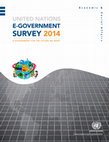Chapters/Books by Robert Niewiadomski

The recent rise of populism around the world, often accompanied by nationalism and isolationism, ... more The recent rise of populism around the world, often accompanied by nationalism and isolationism, is a trend that presents a serious threat not only to liberal democracies but also to global peace and security. Populist forces have already shown their influence through the British referendum on membership withdrawal from the European Union and the election of Donald J. Trump as the U.S. President in 2016. These two events alone had ripple effects and were felt by the international community. The causes of populism are being currently revisited. It appears that socioeconomic and cultural aspects are key contributors. Even though the persistent existence of populist elements within societies comes from the very core of the democratic experiment, the current trend in social media technologies allowed demagogues to utilize viral deception on a considerable scale. The authors argue that social media technologies could be employed through e-participation to inhibit populism by bolstering civic empowerment, transparency, progressive inclusiveness, fact-based analysis, and informed decision making.

The use of machines has changed the workplaces of today. While machinery is still not able to per... more The use of machines has changed the workplaces of today. While machinery is still not able to perform certain jobs that require creative or non-routine functions, their continuous advancements have shifted the dynamic between organizations and manual laborers.
Strategic Imperatives and Core Competencies in the Era of Robotics and Artificial Intelligence focuses on contemporary organizations and their use of new competencies. Featuring coverage on new skill identification and best practices for management, this book is essential for professionals, administrators, researchers, and students seeking current research on the latest developments in technological applications in the workplace.
Our inventions defined the work we engaged in for centuries; created new industries and employment opportunities around them. They, however, had often unforeseen consequences that affected the way we lived, interacted with each other, and redefined our societal rules. The established narration portrays the impact of major technological leaps in civilization on employment as temporary disruptions: Many finds themselves without employment taken away from them by efficient, laborsaving inventions, but, in the long run, through gradual adaptations, improved education and gaining higher qualifications, everyone benefits. In this chapter, the authors explore the impact of the rapid expansion of artificial intelligence (AI) in relations to the labor market. The authors argue that this rather optimistic, even naïve scenario, collapses while confronted with the exponential growth of AI; in particular, with the potential arrival of syneoids – robotic forms of “strong AI” possessing, or even exceeding, the full range of human cognitive abilities.

"The notion of effective leadership varied greatly depending on historical, social and political ... more "The notion of effective leadership varied greatly depending on historical, social and political tradition. It was often tainted by propaganda and political bias. Some great minds including Plato, Confucius, Machiavelli, Hobbes, and others contributed substantially to the reflections on what it means to be an effective leader. (...)
Theoreticians of leadership identified few major styles of leadership. Two of them, authoritarian and paternalistic, have common features with the old idea of kingship. An authoritarian leader maintains a sharp distinction between the ruler and the ruled and a strict control over the latter through various instruments, typically through overregulation aimed at suppression of individualism or anything perceived as subversive. The paternalistic model, roughly speaking, replicates the authoritarian rule with one important distinction - the father-like leader wins the trust and respect of his followers (his “children”) by skillful social manipulation sending the message of care and concern. In addition to the above two, the transactional model utilizes a simple mechanism of rewards and punishments, typically involving an exchange of labor for rewards. The type of leadership that is of the greater concern for us, however, is the transformational leadership. It is founded on a genuine concern for citizens, intellectual stimulation, and a delivery of a common vision.
The nascent form of transformational leadership that emerged at the dawn of the United States constituted a paradigmatic shift in the modern history of the West. (...) George Washington was instrumental in setting a precedent for this pivotal moment. He emerged as a custodian of the common good and a protector of the rules established for the enhancement of the nation’s well-being. Obviously, this vision never had quite the kind of clarity as described above. There was some hesitation whether this kind or leadership will be taken seriously in the Old World. These doubts and struggles were reflected in deliberations regarding the styling and insignia of the future president. Washington, with his charisma, could have easily influenced the future of the presidency, and possibly swayed it towards a type of quasi-monarchy. He adopted, however, a surprisingly modern and modest statesmanship followed later by archetypical visionary leaders: Lincoln, FDR, Johnson, and Reagan."
About the book:
From Google search to self-driving cars to human longevity, is Alphabet creating a neoteric Garden of Eden or Bentham's Panopticon? Will King Solomon's challenge supersede the Turing test for artificial intelligence? Can transhumanism mitigate existential threats to humankind? These are some of the overarching questions in this book, which explores the impact of information awareness on humanity starting from the Book of Genesis to the Royal Library of Alexandria in the 3rd century BC to the modern day of Google Search, IBM Watson, and Wolfram|Alpha. The book also covers Search Engine Optimization, Google AdWords, Google Maps, Google Local Search, and what every business leader must know about digital transformation. "Search is curiosity, and that will never be done," said Google's first female engineer and Yahoo's sixth CEO Marissa Mayer. The truth is out there; we just need to know how to Google it!
Table of Contents
To Google or Not to Google.- Alan Turing vs. King Solomon; Or Imitation Game vs. Superintelligence.- Self-Motivating Computational System Cognitive Architecture (An Introduction).- Modeling Emotions in a Computational System.- Artificial General Intelligence as an Emergent Quality.- The Future of Driverless Cards.- Google vs. Death: To Be, or Not to Be?.- Gene Editing: A New Hope!.- The Chronicle of Cyber Grand Challenge.- Autonomous Vulnerability Scanning and Patching of Binaries.- Continuous Penetration Testing.- "How" - The Key to Knowledge-Building Pedagogy Success in Supporting Paradigm Shifts for Student Growth and the 4Cs of Future Education.- Educational Ergonomics and the Future of the Mind.- An Answer to the Math Problem.- XQ Super Schools: Academy of Online Achievement for Bolder Super School Project.- Google Maps and Google Local Search.- Internet Advertising and Google AdWords.- SEO in the Age of Digital Transformation: What Every Business Leader Must Know.- Tips for Writing Outstanding SEO Boosting Content.- Search Engine Optimization: Getting to Google's First Page.- Communication and Language in the Age of Digital Transformation.- Privileged Information: The Corporatization of Information.- Toward Seamless Access: Libraries from Alexandria through the Digital Age.- Wolfram|Alpha: A Computational Knowledge "Search" Engine.- Social Media as a Tool for Information Warfare.- Subtle New Forms of Internet Influence are Putting Democracy at Risk Worldwide.- Our Hopes and Expectations for the Next President.- The Transhumanist Platform.- Google My Religion: The Gordian Knot of Religious, Moral, and Political Entanglement.- Transfigurism: Glimpse into a Future of Religion as Exemplified by Religious Transhumanists.- Transhumanism: The Growing Worldview.- Why I am a Transhumanist.- The Splintering and Controversy of Transhumanism.

“Science is art,” said Regina Dugan, a senior executive at Google and former director of DARPA. “... more “Science is art,” said Regina Dugan, a senior executive at Google and former director of DARPA. “It is the process of creating something that never exists before. ... It makes us ask new questions about ourselves, others; about ethics, the future.” This second volume of the Digital Da Vinci book series leads the discussions on the world’s first computer art in the 1950s and the actualization of Star Trek’s holodeck in the future with the help of artificial intelligence and cyborgs. In this book, Gavin Sade describes experimental creative practices that bring together arts, science, and technology in imaginative ways; Mine Özkar expounds visual computation for good designs based on repetition and variation; Raffaella Folgieri, Claudio Lucchiari, Marco Granato and Daniele Grechi introduce BrainArt, a brain-computer interface that allows users to create drawings using their own cerebral rhythms; Nathan Cohen explores artificially created spaces that enhance spatial awareness and challenge our perception of what we encounter; Keith Armstrong discusses embodied experiences that affect the mind and body of participating audiences; Diomidis Spinellis uses Etoys and Squeak in a scientific experiment to teach the concept of physical computing; Benjamin Cowley explains the massively multiplayer online game “Green My Place” aimed at achieving behavior transformation in energy awareness; Robert Niewiadomski and Dennis Anderson portray 3-D manufacturing as the beginning of common creativity revolution; Stephen Barrass takes 3-D printing to another dimension by fabricating an object from a sound recording; Mari Velonaki examines the element of surprise and touch sensing in human-robot interaction; and Roman Danylak surveys the media machines in light of Marshall McLuhan’s dictum “the medium is the message.” Digital Da Vinci: Computers in the Arts and Sciences is dedicated to polymathic education and interdisciplinary studies in the digital age empowered by computer science. Educators and researchers ought to encourage the new generation of scholars to become as well rounded as a Renaissance man or woman.
Articles by Robert Niewiadomski

NYS TESOL JOURNAL Vol. 9, No. 2, 2022
Native-speakerism is a language ideology rooted in hegemonic monoglot English and the colonial ph... more Native-speakerism is a language ideology rooted in hegemonic monoglot English and the colonial phantasm of Western racio-cultural supremacy. It asserts that speakers of privileged varieties of English as their L1 possess the superior right to establish language standards and instructional methods. Moreover, there are extra-linguistic modifiers that native speakerism incorporates, such as ethnicity, social class, or ancestry. This exploratory study, guided by Bourdieu's conception of symbolic violence and legitimate language, seeks to explore how monolingual and multilingual TESOL teachers negotiate their relationships with native-speakerism. The analysis of the data from semi-structured interviews reveals subtle patterns of allegiance and opposition to native-speakerism in the TESOL ecosystem. The study can inform teacher education and promote critical social justice-informed approaches to decolonizing TESOL instruction.
It is quite staggering how quickly Pokémania is sweeping across the country. Even though the curr... more It is quite staggering how quickly Pokémania is sweeping across the country. Even though the current formula of the game is incredibly simple, it does something astonishing—as people chase virtual monsters, they have to engage in physical movement, searching, and exploration. Businesses, tourist attractions and even churches became PokéStops that attract an influx of gamers. No doubt the fad will be followed by similar location-based augmented reality games and apps. Augmented reality (AR) will dominate not only in the realm of entertainments but also marketing, shopping, exercise, and most importantly, education.

The history of humanity is very much a history of human migrations –often turbulent, but mostly a... more The history of humanity is very much a history of human migrations –often turbulent, but mostly an agent of creative and progressive ferment. The current influx of migrants to EU from the Middle East and Africa should not be seen as a crisis, but rather as a win-win opportunity, and a lesson on human solidarity that both Europe and the U. S. should learn. Media discussion concerning the arrival of those who seen protection and better lives at the gates of Europe have been lately heavily dominated by something very familiar – labeling people. Labels seem to matter. They have the power to determine who deserves entry, protection, and help, and who is considered to be an undesirable burden. Migrants’ individual stories, as well as theirs and our humanity, get lost in the dubious distinction between “refugees” and “economic migrants.”
http://nabungo.org/2015/09/14/migrants-at-the-gates-of-europe-will-europe-tear-down-walls-of-fear/

ACM - Computers in Entertainment, Aug 31, 2015
The modern office evolved from workspaces developed during the Industrial Revolution. The explosi... more The modern office evolved from workspaces developed during the Industrial Revolution. The explosion of manufacturing and commercial activities required a sophisticated system of administrative management run by an army of clerks. They had to be housed in a designated space equipped with suitable infrastructure. This is still often the type of office we encounter today, but what will be the office of tomorrow? A plethora of digital technologies continues to transform the modern workplace: ubiquitous Wi-Fi, Internet of Things (IoT), cloud-based services etc. The phenomenon of IoT could transform any place into a flexible infused with AI “smart space.” These adaptable spaces powered by AI infrastructure could allow anyone to do any type of office work anywhere. Will the ubiquitous office increase productivity? And are there reasons to believe that the office of the future will eradicate face-to-face interactions altogether?
ACM Computers in Entertainment , Jul 15, 2015
“To be is to be perceived” –online, we should add. So many of us, willingly and unwillingly, shar... more “To be is to be perceived” –online, we should add. So many of us, willingly and unwillingly, share our deepest personal thoughts and information with corporations, governments, and other individuals. Is the notion of privacy a thing of the past? When social media “steal” our privacy, should we just simply “get over it” ? Or should we rather retain some form of it as actually beneficial to intellectual innovation and social progress?
http://cie.acm.org/articles/panopticism-cyberculture-could-privacy-invasive-social-media-stifle-innovation/
The Millennials are radically different from previous generations in their attitude towards the n... more The Millennials are radically different from previous generations in their attitude towards the notion of ownership. It is a generation that truly challenges the paradigmatic model of acquiring and owning goods; thus, it radically re-defines the American Dream. Symptoms of this paradigmatic transformation include such phenomenon as “shared economy” or “collaborative consumption.” The prevalent traits of this generation seem to be a decreasing value of solid commitment, emphasis on the “provisional” rather than the “permanent” and a certain form of existential “nomadism“ or “tourism” allowing an individual to become a collector of experiences rather that things.
http://cie.acm.org/articles/digital-generation-beginning-paradigm-shift-ownership/
The purpose of IPR is to promote creativity and progress. This is how the system is supposed to w... more The purpose of IPR is to promote creativity and progress. This is how the system is supposed to work: The government grants the patent holder an exclusive right to an invention. Patents allow inventors to make profit. In turn, they are more likely to invest time, money, and their ingenuity to create something that society can benefit from. In a perfect world, everybody wins. In reality, however, nobody knows if these incentives are really needed for creativity to flourish. Some claim the contrary: Proliferation of patents slows down creation of new ideas and impedes progress.
http://cie.acm.org/articles/time-rethink-intellectual-property-rights/
Reports by Robert Niewiadomski

(Robert Niewiadomski -UN Survey Contributor)
The United Nations E-Government Survey 2014: E-Gove... more (Robert Niewiadomski -UN Survey Contributor)
The United Nations E-Government Survey 2014: E-Government for the Future We Want was completed in January 2014 and launched in June 2014. The theme of 2014 is particularly relevant to addressing the multi-faceted and complex challenges that our societies face today. The publication addresses critical aspects of e-government for sustainable development articulated along eight chapters.
"The 2014 edition of the United Nations E-Government Survey is the product of a collective effort by the Division for Public Administration and Development Management (DPADM) of the United Nations Department of Economic and Social Affairs (DESA), as well as by many valued external experts, researchers and contributors from other organizations."
"At the United Nations Conference on Sustainable Development held in Rio de Janeiro in June 2012, a global consensus was reached that to achieve our sustainable development goals we need institutions at all levels that are effective, transparent, accountable and democratic. E-government holds tremendous potential to improve the way that governments deliver public services and enhance broad stakeholder involvement in public service.
The 2014 edition of the United Nations E-Government Survey, coming on the heels of a ten-year period of the World Summit on the Information Society (WSIS) action line implementation, asserts that information and communication technologies are potent enablers of the effective, transparent and accountable institutions envisaged by world leaders at Rio. Countries in all regions of the world and at all levels of development continue to make significant investments in public sector ICT for these reasons. It is my view that such efforts are vital to achieving broad public participation in decision-making, enhancing access to information and removing barriers to public service—all essential if we are to assure a future of equitable economic growth and sustainable development that are free of poverty and hunger. I commend this report to policy-makers, leading officials and analysts consider- ing the contribution that e-government can make to the future we want and the place of effective public management in good governance in the post-2015 era."
WU Hongbo
Under-Secretary-General for Economic and Social Affairs and Secretary-General for the International Conference on Small Islands Developing States
Papers/Analyses/Social and Political Commentary by Robert Niewiadomski
Both the Brexit and Trump phenomena share some commonalities. Many disenfranchised individuals in... more Both the Brexit and Trump phenomena share some commonalities. Many disenfranchised individuals in Britain and in the U.S. express sentiments that mass migration, globalization, and trade agreements have contributed to their economic, social, and cultural decline. Are they the primary causes of this perceived downturn? What is the real underlying culprit that we all are reluctant to acknowledge? Most people are in denial about the reality that the offshore-outsourced jobs will not come back and new ones will require a minimal human input. What they vastly underestimate is the role of automation in eliminating jobs.

It is fair to say that state run, free, and compulsory public education was a great achievement. ... more It is fair to say that state run, free, and compulsory public education was a great achievement. And as long as remained a feeding pipe for factories of the industrial age, it served its purpose well -it helped millions to make a decent living and stimulated upward social mobility. Did it make us more imaginative or inventive? Surely, we became more educated, but that is not quite the same as being a creative problem solver and critical thinker. The old industrial world is long gone, but the vestiges of factory like model of education remain in spite being no longer feasible or sustainable. The rapid expansion of artificial intelligence and robotization, still so underestimated in mainstream public discourse, gives us some insight to what the future of education might have in store for us, at least in developed parts of the world. What we are trying to present here, is a possible scenario based on the available clues, particularly the explosion of AI.











Uploads
Chapters/Books by Robert Niewiadomski
Strategic Imperatives and Core Competencies in the Era of Robotics and Artificial Intelligence focuses on contemporary organizations and their use of new competencies. Featuring coverage on new skill identification and best practices for management, this book is essential for professionals, administrators, researchers, and students seeking current research on the latest developments in technological applications in the workplace.
Our inventions defined the work we engaged in for centuries; created new industries and employment opportunities around them. They, however, had often unforeseen consequences that affected the way we lived, interacted with each other, and redefined our societal rules. The established narration portrays the impact of major technological leaps in civilization on employment as temporary disruptions: Many finds themselves without employment taken away from them by efficient, laborsaving inventions, but, in the long run, through gradual adaptations, improved education and gaining higher qualifications, everyone benefits. In this chapter, the authors explore the impact of the rapid expansion of artificial intelligence (AI) in relations to the labor market. The authors argue that this rather optimistic, even naïve scenario, collapses while confronted with the exponential growth of AI; in particular, with the potential arrival of syneoids – robotic forms of “strong AI” possessing, or even exceeding, the full range of human cognitive abilities.
Theoreticians of leadership identified few major styles of leadership. Two of them, authoritarian and paternalistic, have common features with the old idea of kingship. An authoritarian leader maintains a sharp distinction between the ruler and the ruled and a strict control over the latter through various instruments, typically through overregulation aimed at suppression of individualism or anything perceived as subversive. The paternalistic model, roughly speaking, replicates the authoritarian rule with one important distinction - the father-like leader wins the trust and respect of his followers (his “children”) by skillful social manipulation sending the message of care and concern. In addition to the above two, the transactional model utilizes a simple mechanism of rewards and punishments, typically involving an exchange of labor for rewards. The type of leadership that is of the greater concern for us, however, is the transformational leadership. It is founded on a genuine concern for citizens, intellectual stimulation, and a delivery of a common vision.
The nascent form of transformational leadership that emerged at the dawn of the United States constituted a paradigmatic shift in the modern history of the West. (...) George Washington was instrumental in setting a precedent for this pivotal moment. He emerged as a custodian of the common good and a protector of the rules established for the enhancement of the nation’s well-being. Obviously, this vision never had quite the kind of clarity as described above. There was some hesitation whether this kind or leadership will be taken seriously in the Old World. These doubts and struggles were reflected in deliberations regarding the styling and insignia of the future president. Washington, with his charisma, could have easily influenced the future of the presidency, and possibly swayed it towards a type of quasi-monarchy. He adopted, however, a surprisingly modern and modest statesmanship followed later by archetypical visionary leaders: Lincoln, FDR, Johnson, and Reagan."
About the book:
From Google search to self-driving cars to human longevity, is Alphabet creating a neoteric Garden of Eden or Bentham's Panopticon? Will King Solomon's challenge supersede the Turing test for artificial intelligence? Can transhumanism mitigate existential threats to humankind? These are some of the overarching questions in this book, which explores the impact of information awareness on humanity starting from the Book of Genesis to the Royal Library of Alexandria in the 3rd century BC to the modern day of Google Search, IBM Watson, and Wolfram|Alpha. The book also covers Search Engine Optimization, Google AdWords, Google Maps, Google Local Search, and what every business leader must know about digital transformation. "Search is curiosity, and that will never be done," said Google's first female engineer and Yahoo's sixth CEO Marissa Mayer. The truth is out there; we just need to know how to Google it!
Table of Contents
To Google or Not to Google.- Alan Turing vs. King Solomon; Or Imitation Game vs. Superintelligence.- Self-Motivating Computational System Cognitive Architecture (An Introduction).- Modeling Emotions in a Computational System.- Artificial General Intelligence as an Emergent Quality.- The Future of Driverless Cards.- Google vs. Death: To Be, or Not to Be?.- Gene Editing: A New Hope!.- The Chronicle of Cyber Grand Challenge.- Autonomous Vulnerability Scanning and Patching of Binaries.- Continuous Penetration Testing.- "How" - The Key to Knowledge-Building Pedagogy Success in Supporting Paradigm Shifts for Student Growth and the 4Cs of Future Education.- Educational Ergonomics and the Future of the Mind.- An Answer to the Math Problem.- XQ Super Schools: Academy of Online Achievement for Bolder Super School Project.- Google Maps and Google Local Search.- Internet Advertising and Google AdWords.- SEO in the Age of Digital Transformation: What Every Business Leader Must Know.- Tips for Writing Outstanding SEO Boosting Content.- Search Engine Optimization: Getting to Google's First Page.- Communication and Language in the Age of Digital Transformation.- Privileged Information: The Corporatization of Information.- Toward Seamless Access: Libraries from Alexandria through the Digital Age.- Wolfram|Alpha: A Computational Knowledge "Search" Engine.- Social Media as a Tool for Information Warfare.- Subtle New Forms of Internet Influence are Putting Democracy at Risk Worldwide.- Our Hopes and Expectations for the Next President.- The Transhumanist Platform.- Google My Religion: The Gordian Knot of Religious, Moral, and Political Entanglement.- Transfigurism: Glimpse into a Future of Religion as Exemplified by Religious Transhumanists.- Transhumanism: The Growing Worldview.- Why I am a Transhumanist.- The Splintering and Controversy of Transhumanism.
Articles by Robert Niewiadomski
http://nabungo.org/2015/09/14/migrants-at-the-gates-of-europe-will-europe-tear-down-walls-of-fear/
http://cie.acm.org/articles/panopticism-cyberculture-could-privacy-invasive-social-media-stifle-innovation/
http://cie.acm.org/articles/digital-generation-beginning-paradigm-shift-ownership/
http://cie.acm.org/articles/time-rethink-intellectual-property-rights/
Reports by Robert Niewiadomski
The United Nations E-Government Survey 2014: E-Government for the Future We Want was completed in January 2014 and launched in June 2014. The theme of 2014 is particularly relevant to addressing the multi-faceted and complex challenges that our societies face today. The publication addresses critical aspects of e-government for sustainable development articulated along eight chapters.
"The 2014 edition of the United Nations E-Government Survey is the product of a collective effort by the Division for Public Administration and Development Management (DPADM) of the United Nations Department of Economic and Social Affairs (DESA), as well as by many valued external experts, researchers and contributors from other organizations."
"At the United Nations Conference on Sustainable Development held in Rio de Janeiro in June 2012, a global consensus was reached that to achieve our sustainable development goals we need institutions at all levels that are effective, transparent, accountable and democratic. E-government holds tremendous potential to improve the way that governments deliver public services and enhance broad stakeholder involvement in public service.
The 2014 edition of the United Nations E-Government Survey, coming on the heels of a ten-year period of the World Summit on the Information Society (WSIS) action line implementation, asserts that information and communication technologies are potent enablers of the effective, transparent and accountable institutions envisaged by world leaders at Rio. Countries in all regions of the world and at all levels of development continue to make significant investments in public sector ICT for these reasons. It is my view that such efforts are vital to achieving broad public participation in decision-making, enhancing access to information and removing barriers to public service—all essential if we are to assure a future of equitable economic growth and sustainable development that are free of poverty and hunger. I commend this report to policy-makers, leading officials and analysts consider- ing the contribution that e-government can make to the future we want and the place of effective public management in good governance in the post-2015 era."
WU Hongbo
Under-Secretary-General for Economic and Social Affairs and Secretary-General for the International Conference on Small Islands Developing States
Papers/Analyses/Social and Political Commentary by Robert Niewiadomski
Strategic Imperatives and Core Competencies in the Era of Robotics and Artificial Intelligence focuses on contemporary organizations and their use of new competencies. Featuring coverage on new skill identification and best practices for management, this book is essential for professionals, administrators, researchers, and students seeking current research on the latest developments in technological applications in the workplace.
Our inventions defined the work we engaged in for centuries; created new industries and employment opportunities around them. They, however, had often unforeseen consequences that affected the way we lived, interacted with each other, and redefined our societal rules. The established narration portrays the impact of major technological leaps in civilization on employment as temporary disruptions: Many finds themselves without employment taken away from them by efficient, laborsaving inventions, but, in the long run, through gradual adaptations, improved education and gaining higher qualifications, everyone benefits. In this chapter, the authors explore the impact of the rapid expansion of artificial intelligence (AI) in relations to the labor market. The authors argue that this rather optimistic, even naïve scenario, collapses while confronted with the exponential growth of AI; in particular, with the potential arrival of syneoids – robotic forms of “strong AI” possessing, or even exceeding, the full range of human cognitive abilities.
Theoreticians of leadership identified few major styles of leadership. Two of them, authoritarian and paternalistic, have common features with the old idea of kingship. An authoritarian leader maintains a sharp distinction between the ruler and the ruled and a strict control over the latter through various instruments, typically through overregulation aimed at suppression of individualism or anything perceived as subversive. The paternalistic model, roughly speaking, replicates the authoritarian rule with one important distinction - the father-like leader wins the trust and respect of his followers (his “children”) by skillful social manipulation sending the message of care and concern. In addition to the above two, the transactional model utilizes a simple mechanism of rewards and punishments, typically involving an exchange of labor for rewards. The type of leadership that is of the greater concern for us, however, is the transformational leadership. It is founded on a genuine concern for citizens, intellectual stimulation, and a delivery of a common vision.
The nascent form of transformational leadership that emerged at the dawn of the United States constituted a paradigmatic shift in the modern history of the West. (...) George Washington was instrumental in setting a precedent for this pivotal moment. He emerged as a custodian of the common good and a protector of the rules established for the enhancement of the nation’s well-being. Obviously, this vision never had quite the kind of clarity as described above. There was some hesitation whether this kind or leadership will be taken seriously in the Old World. These doubts and struggles were reflected in deliberations regarding the styling and insignia of the future president. Washington, with his charisma, could have easily influenced the future of the presidency, and possibly swayed it towards a type of quasi-monarchy. He adopted, however, a surprisingly modern and modest statesmanship followed later by archetypical visionary leaders: Lincoln, FDR, Johnson, and Reagan."
About the book:
From Google search to self-driving cars to human longevity, is Alphabet creating a neoteric Garden of Eden or Bentham's Panopticon? Will King Solomon's challenge supersede the Turing test for artificial intelligence? Can transhumanism mitigate existential threats to humankind? These are some of the overarching questions in this book, which explores the impact of information awareness on humanity starting from the Book of Genesis to the Royal Library of Alexandria in the 3rd century BC to the modern day of Google Search, IBM Watson, and Wolfram|Alpha. The book also covers Search Engine Optimization, Google AdWords, Google Maps, Google Local Search, and what every business leader must know about digital transformation. "Search is curiosity, and that will never be done," said Google's first female engineer and Yahoo's sixth CEO Marissa Mayer. The truth is out there; we just need to know how to Google it!
Table of Contents
To Google or Not to Google.- Alan Turing vs. King Solomon; Or Imitation Game vs. Superintelligence.- Self-Motivating Computational System Cognitive Architecture (An Introduction).- Modeling Emotions in a Computational System.- Artificial General Intelligence as an Emergent Quality.- The Future of Driverless Cards.- Google vs. Death: To Be, or Not to Be?.- Gene Editing: A New Hope!.- The Chronicle of Cyber Grand Challenge.- Autonomous Vulnerability Scanning and Patching of Binaries.- Continuous Penetration Testing.- "How" - The Key to Knowledge-Building Pedagogy Success in Supporting Paradigm Shifts for Student Growth and the 4Cs of Future Education.- Educational Ergonomics and the Future of the Mind.- An Answer to the Math Problem.- XQ Super Schools: Academy of Online Achievement for Bolder Super School Project.- Google Maps and Google Local Search.- Internet Advertising and Google AdWords.- SEO in the Age of Digital Transformation: What Every Business Leader Must Know.- Tips for Writing Outstanding SEO Boosting Content.- Search Engine Optimization: Getting to Google's First Page.- Communication and Language in the Age of Digital Transformation.- Privileged Information: The Corporatization of Information.- Toward Seamless Access: Libraries from Alexandria through the Digital Age.- Wolfram|Alpha: A Computational Knowledge "Search" Engine.- Social Media as a Tool for Information Warfare.- Subtle New Forms of Internet Influence are Putting Democracy at Risk Worldwide.- Our Hopes and Expectations for the Next President.- The Transhumanist Platform.- Google My Religion: The Gordian Knot of Religious, Moral, and Political Entanglement.- Transfigurism: Glimpse into a Future of Religion as Exemplified by Religious Transhumanists.- Transhumanism: The Growing Worldview.- Why I am a Transhumanist.- The Splintering and Controversy of Transhumanism.
http://nabungo.org/2015/09/14/migrants-at-the-gates-of-europe-will-europe-tear-down-walls-of-fear/
http://cie.acm.org/articles/panopticism-cyberculture-could-privacy-invasive-social-media-stifle-innovation/
http://cie.acm.org/articles/digital-generation-beginning-paradigm-shift-ownership/
http://cie.acm.org/articles/time-rethink-intellectual-property-rights/
The United Nations E-Government Survey 2014: E-Government for the Future We Want was completed in January 2014 and launched in June 2014. The theme of 2014 is particularly relevant to addressing the multi-faceted and complex challenges that our societies face today. The publication addresses critical aspects of e-government for sustainable development articulated along eight chapters.
"The 2014 edition of the United Nations E-Government Survey is the product of a collective effort by the Division for Public Administration and Development Management (DPADM) of the United Nations Department of Economic and Social Affairs (DESA), as well as by many valued external experts, researchers and contributors from other organizations."
"At the United Nations Conference on Sustainable Development held in Rio de Janeiro in June 2012, a global consensus was reached that to achieve our sustainable development goals we need institutions at all levels that are effective, transparent, accountable and democratic. E-government holds tremendous potential to improve the way that governments deliver public services and enhance broad stakeholder involvement in public service.
The 2014 edition of the United Nations E-Government Survey, coming on the heels of a ten-year period of the World Summit on the Information Society (WSIS) action line implementation, asserts that information and communication technologies are potent enablers of the effective, transparent and accountable institutions envisaged by world leaders at Rio. Countries in all regions of the world and at all levels of development continue to make significant investments in public sector ICT for these reasons. It is my view that such efforts are vital to achieving broad public participation in decision-making, enhancing access to information and removing barriers to public service—all essential if we are to assure a future of equitable economic growth and sustainable development that are free of poverty and hunger. I commend this report to policy-makers, leading officials and analysts consider- ing the contribution that e-government can make to the future we want and the place of effective public management in good governance in the post-2015 era."
WU Hongbo
Under-Secretary-General for Economic and Social Affairs and Secretary-General for the International Conference on Small Islands Developing States